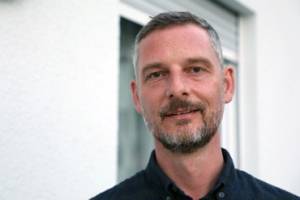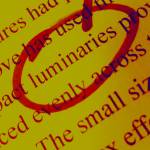
Time and TIDE . . .
Modern communications have increased the pace of our working lives, ramped up the pressure on fast turnarounds, and blurred the boundary between work and leisure. With your smartphone in your pocket, how often are you genuinely not ‘at work’? And with that pressure, it’s all too easy to decide to claw back some time by choosing not to attend a trade show or a conference. I’m sure we’ve all done it.
Having some involvement with Avixa’s recent TIDE conference in Amsterdam meant that this was one event for which I was definitely going to make time, and it reminded me of the value that these events can offer.
The day’s presentations ranged through design processes in art, architectural lighting and event design, the interplay of creativity and commerce, VR pre-visualisation and artistic visions of the future, all tied together by the common thread of ‘design thinking’.
Dutch artist and innovator Daan Roosegarde set a high standard with his inspirational opening keynote address, discussing his inventive approaches to dealing with smog-choked modern cities, power-generating kites as light art and, on the engineering marvel that is the Afsluitdijk dike, a forehead-slappingly clever architectural lighting scheme which has to run maintenance-free for 50 years.
And Daan wasn’t the only one delivering insights into new ways of problem-solving in design. ‘Design thinking’ methodology was explained by Jan-Erik Baars from the University of Applied Science; Sabine De Schutter discussed her design thinking approach in various architectural lighting schemes; James Simpson from London’s Royal Opera House explained how the cutting edge of show pre-visualisation is delivering unprecedented design solutions in this world-leading venue.
But for me the most thought-provoking speaker of all was Ben Moorsom (pictured above), an event designer who has spent the last 25 years building a science-based toolbox to maximise audience engagement. Through his company, Toronto-based Debut Group, Ben works with leading academic institutions to test and prove the principles that underpin his design work. In Debut Group’s events, every element of the environment – every sound cue, every lighting state, every colour and every silence – has a specific purpose. A CEO walks onto a stage at a corporate event, and the audience goes wild. Why? Well, science. The CEO is no doubt a great guy, but the audience has been primed and prepped to produce this reaction since the moment they arrived at the venue.
A question from a delegate voiced an obvious concern: Do you have an ethical line when it comes to manipulating an audience? Ben’s answer was immediate: ‘Absolutely not!’. Perhaps the question was driven by distrust of corporations selling to us, or perhaps by a fear that such techniques could be dangerous in the wrong hands. But let’s face it, the performing arts are generally commercial, and villains have always been pretty switched-on when it comes to exploiting audience psychology (the drums and torchlight parades of the Nuremberg rallies were not about artistic expression). No – Ben’s drive for better events springs not from some Orwellian vision of social control, but from his love of movies and his understanding of how emotionally engaging story-telling techniques make for better audience experiences.
One way or another, it’s all a process of building audience anticipation and rewarding their investment – and Ben wants audiences everywhere to benefit from his knowledge. If this is unethical, then so too is everything else in entertainment and leisure that plays on our psychology – acting, advertising, mood lighting, movie scores, the background music in a swanky restaurant and even the choice of typeface on its menu.
So, TIDE was a day of food-for-thought. Well-produced, well-attended and featuring a broad range of impressive speakers, the TIDE conference was fascinating, thought provoking and inspirational. And being there, sharing the experience with other similarly-minded people, was a far more engaging, enjoyable and rewarding experience than watching half a dozen TED Talks on a laptop. Or maybe I was just being manipulated.
Lee Baldock




